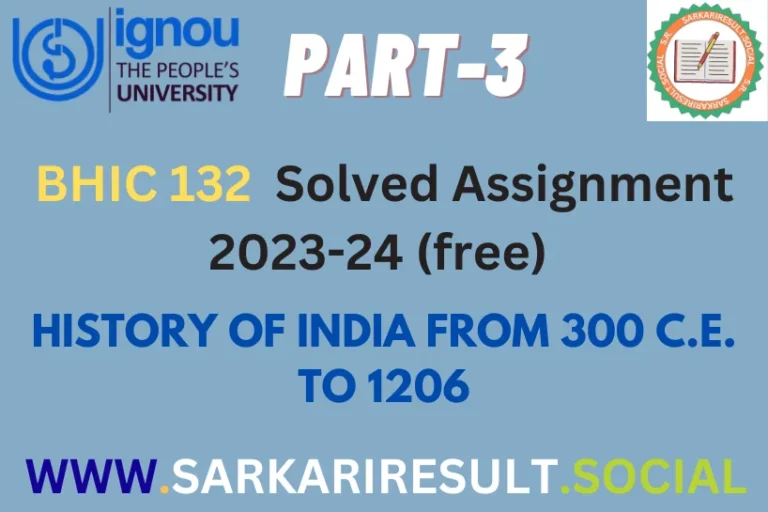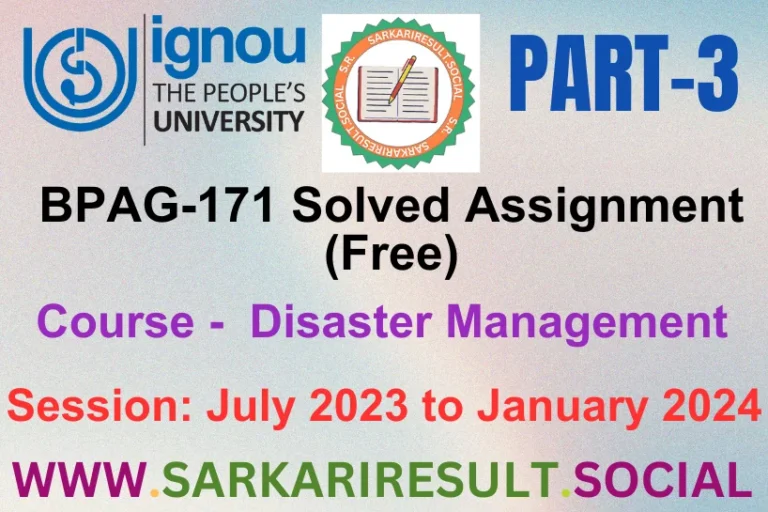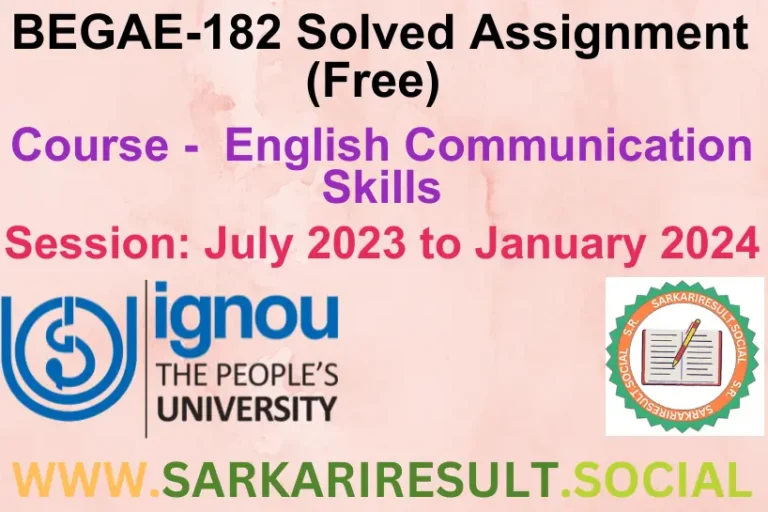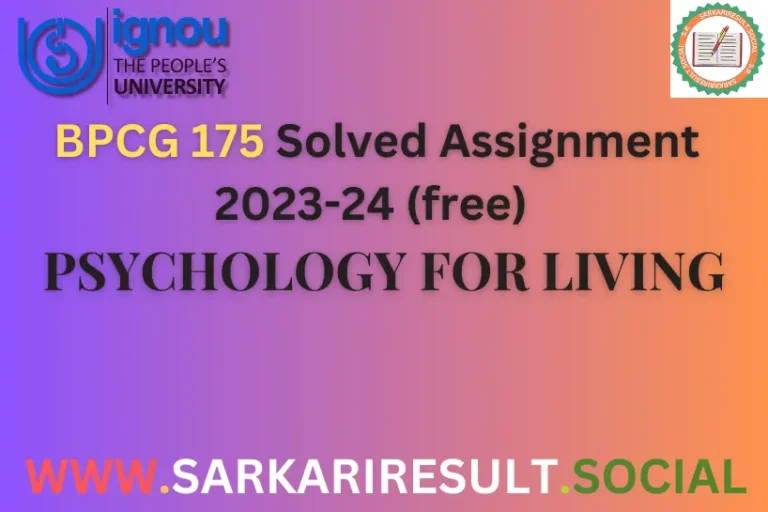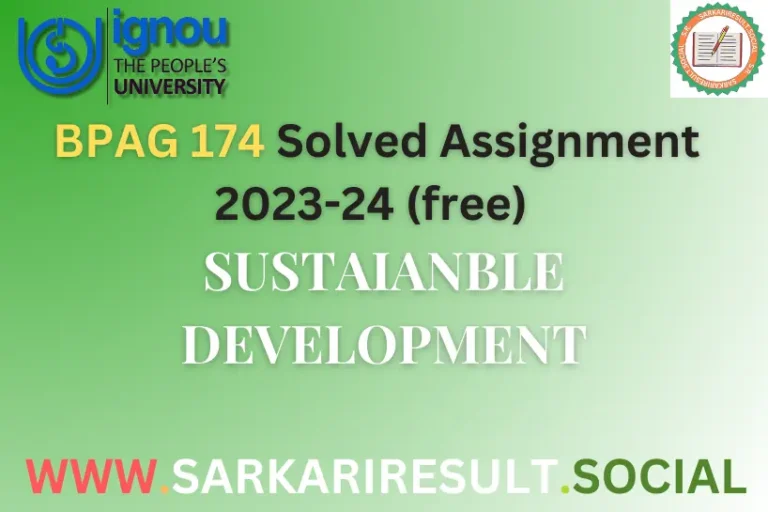BPSC 134 SOLVED IGNOU ASSIGNMENT FREE PART 3
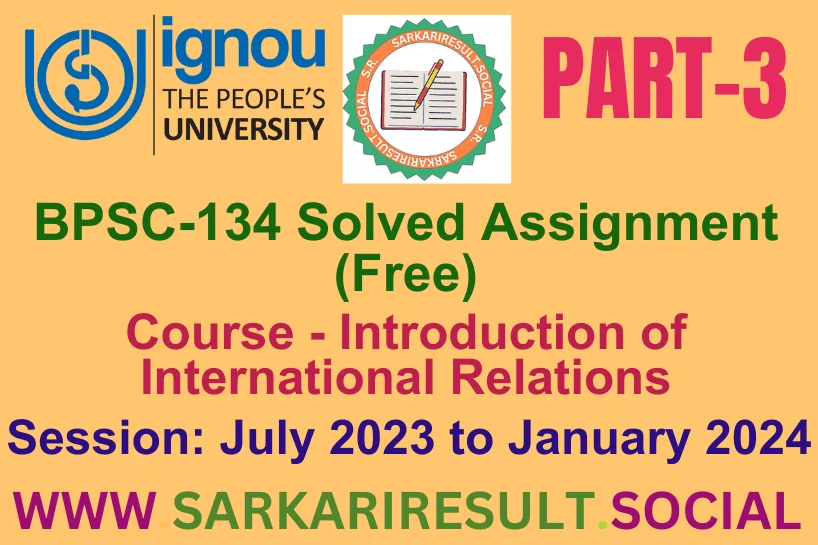
Welcome to the BPSC 134 SOLVED IGNOU ASSIGNMENT FREE PART 3 TMA. Assignment – III simplifies your approach with concise answers to five questions. In just 100 words per response, explore World System Theory, identify elements of national power, understand Classical Realism, explain the concept of balance of power, and delve into the concept of emerging centers of power. Our succinct solutions empower you to navigate these diverse topics effortlessly, ensuring a seamless completion of your assignments while gaining valuable insights into the intricacies of international relations.
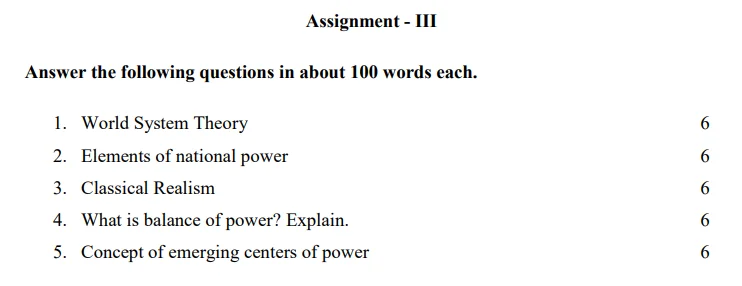
Answer the following questions in about 100 words each.
Q.1 World System Theory
Ans. World-System Theory, developed by sociologist Immanuel Wallerstein, posits that the world is structured by an economic hierarchy comprising core, semi-peripheral, and peripheral nations. Core nations are economically advanced and exploit peripheral nations for resources and cheap labor. Semi-peripheral nations occupy an intermediate position.
The theory emphasizes historical development, unequal power dynamics, and the perpetuation of global inequalities. Wallerstein’s approach underscores the interconnectedness of the global economy and the systemic nature of economic relations between nations, challenging traditional views of development and advocating for a more holistic understanding of the world’s economic structure.
Q.2 Elements of national power
Ans. The elements of national power encompass military strength, economic vitality, technological prowess, diplomatic influence, and cultural appeal. Military power includes defense capabilities and strategic positioning. Economic strength involves productive capacities and financial stability.
Technological prowess refers to innovation and advanced capabilities. Diplomatic influence involves alliances and strategic partnerships. Cultural appeal encompasses soft power, influencing global perceptions. A nation’s comprehensive power is shaped by the synergy of these elements, contributing to its standing in the international arena.
Q.3 Classical Realism
Ans. Classical Realism is a school of thought in international relations emphasizing the role of human nature and power struggles between states. Rooted in the works of thinkers like Thucydides and Machiavelli, it asserts that states are primarily motivated by self-interest and security concerns.
Classical Realism contends that the anarchic nature of the international system leads to competition for power and resources. States are seen as rational actors driven by a desire for survival, and the pursuit of power is viewed as a constant in international affairs. This perspective provides a pessimistic outlook on the potential for lasting peace between nations.
Q.4 What is balance of power? Explain.
Ans. The balance of power is a concept in international relations where states seek to prevent any single actor or coalition from gaining undue influence to maintain stability. It involves a distribution of power that prevents a hegemon or dominant power from dominating the system, thereby reducing the risk of aggression.
States may form alliances or shift alliances dynamically to counterbalance emerging threats. The balance of power theory assumes that states act rationally to secure their interests and that an equilibrium of power reduces the likelihood of conflict, promoting stability in the international system.
Q.5 Concept of emerging centers of power.
Ans. The concept of emerging centers of power refers to the rise and increasing influence of nations or entities that challenge the existing global power structure. These emerging centers, often characterized by economic growth, technological advancement, and geopolitical influence, reshape the dynamics of international relations. As these entities gain prominence, they contribute to a more multipolar world, altering traditional power configurations.
The emergence of new centers of power introduces complexities in global governance, diplomacy, and cooperation, challenging established norms and fostering a more diverse and distributed landscape of influence on the world stage.
Also See This: BPSC 134 SOLVED IGNOU ASSIGNMENT FREE PART 1

